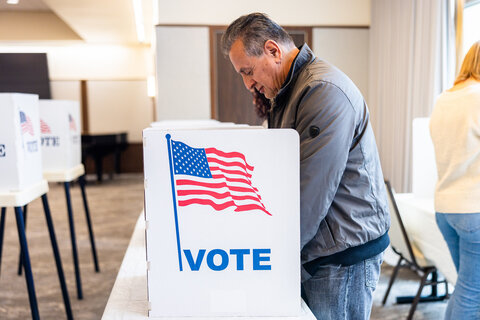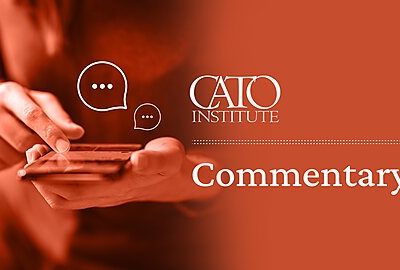
According to multiple reports, Republicans “plan to move quickly” to move election legislation early in the new Congress. Supporters of constitutional liberty should watch closely to make sure that such legislation is shorn of the punitive enforcement provisions and unrealistic timelines that riddled last year’s Republican bill on citizenship verification, and that it does not let the federal government draw unto itself too much discretionary regulatory power over local election administration. Reports AP:
The main legislation that Republicans expect to push will be versions of the American Confidence in Elections Act and the Safeguard American Voter Eligibility Act, said GOP Rep. Bryan Steil of Wisconsin, chair of the Committee on House Administration, which handles election-related legislation. The proposals are known as the ACE and SAVE acts, respectively.
The political logic in starting with those two is clear enough. A requirement to show a government-issued photo ID at the polls is consistently popular with the public across party lines, leaving aside scholars’ doubts as to whether it actually matters much to outcomes. Indeed, most states already have it. Noncitizen voting in federal elections is already unlawful, and there is a broad political consensus on the principle of the thing, if not necessarily on the details of enforcing it.
By contrast, some other ideas floated by Donald Trump and allies, such as requiring that all voting be done on Election Day, are deeply unpopular both with the public and with election administrators of both parties. AP again:
[Republican Georgia Secretary of State] Raffensperger and Michigan Secretary of State Jocelyn Benson, a Democrat, said it would be a mistake to move the country to a single day of voting, something Trump has said he would like to see happen, because it would eliminate early voting and limit access to mail ballots. Both methods are extremely popular among voters. In Georgia, 71% of voters in November cast their ballots in person before Election Day.
Even if there’s more of a consensus in principle behind the ACE and SAVE bills, the question is whether that consensus extends to the details. As I wrote last summer when House Republicans were pushing SAVE as a messaging bill:
the fact is that it’s hard for much of the population to lay hands on high-level documentary proof of citizenship. Drivers’ licenses, government employee IDs, and the like generally don’t record citizenship status. Passports are better, and so are domestic birth certificates bearing someone’s current legal name, but much of the population cannot easily lay hands on either, especially given that many married women have changed their legal names.
For all the polarized talk in this area, the SAVE Act itself acknowledges that less-than-perfect compromise solutions would be necessary. It “requires states to establish an alternative process under which an applicant may submit other evidence to demonstrate US citizenship.” Will this involve some combination of second-best documents, sworn attestations, in-person interviews, or maybe something else? The bill is sparse and vague on these crucial details.
Aside from whether the unrealistic and punitive timelines and penalties for administrators get softened, a particular issue to watch is whether the bill or bills attempt to transform the obscure federal Election Assistance Commission, currently configured as a cheerful helper to local election authorities, into something closer to a regulator empowered to give them orders. Last summer’s SAVE Act authorized the EAC to begin issuing guidance to states on how to apply the law, a potentially broad power.
AP quotes Rep. Steil as saying he “expects there will be ‘some reforms and tweaks’ to the original proposals and hopes Democrats will work with Republicans to refine and ultimately support them.” But as reporter Pam Fessler noticed, the citizenship verification bill is listed among twelve initial bills in a new House Rules package “to be considered with no amendments.” Let’s hope the voice of state and local administrators—and all those concerned with keeping elections decentralized, as contemplated by the US Constitution—is given a chance to be heard.










